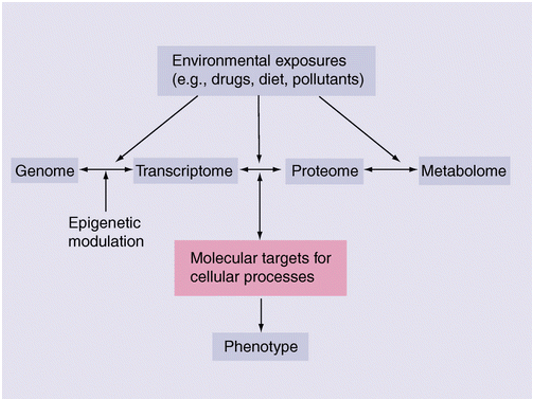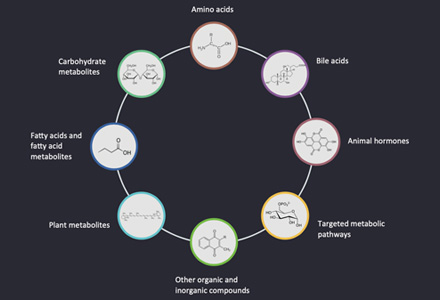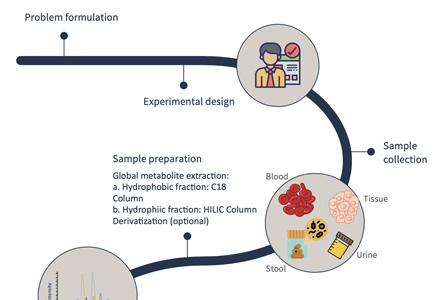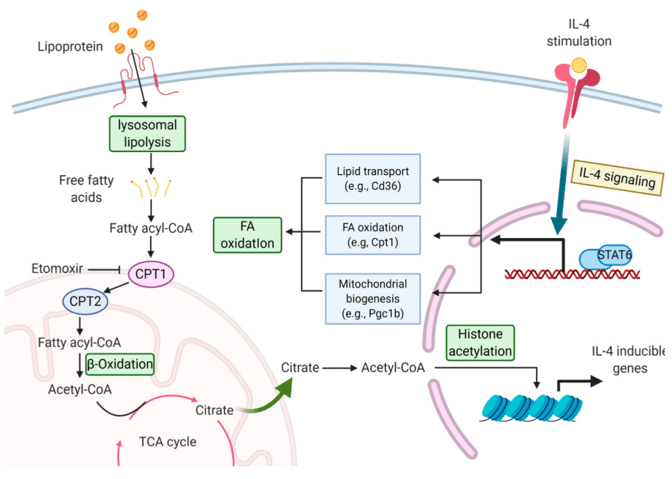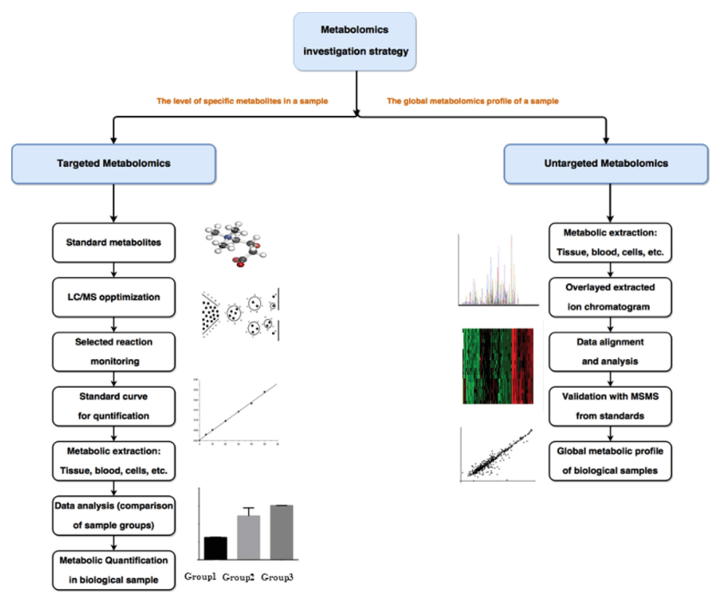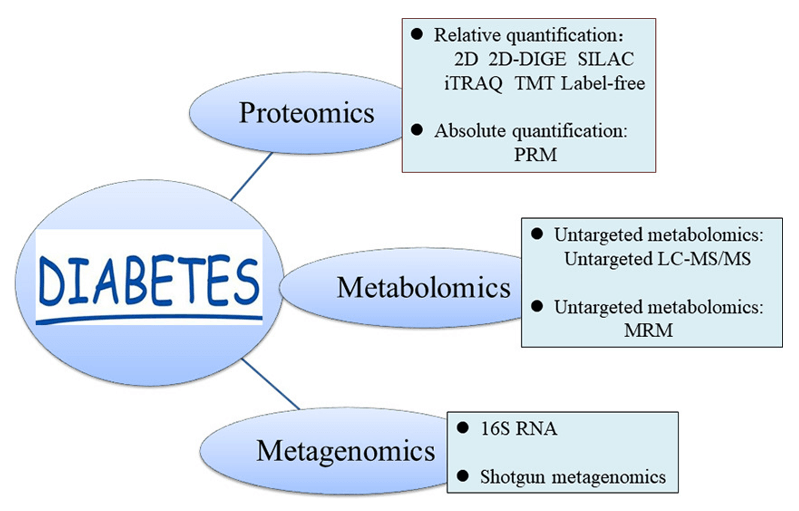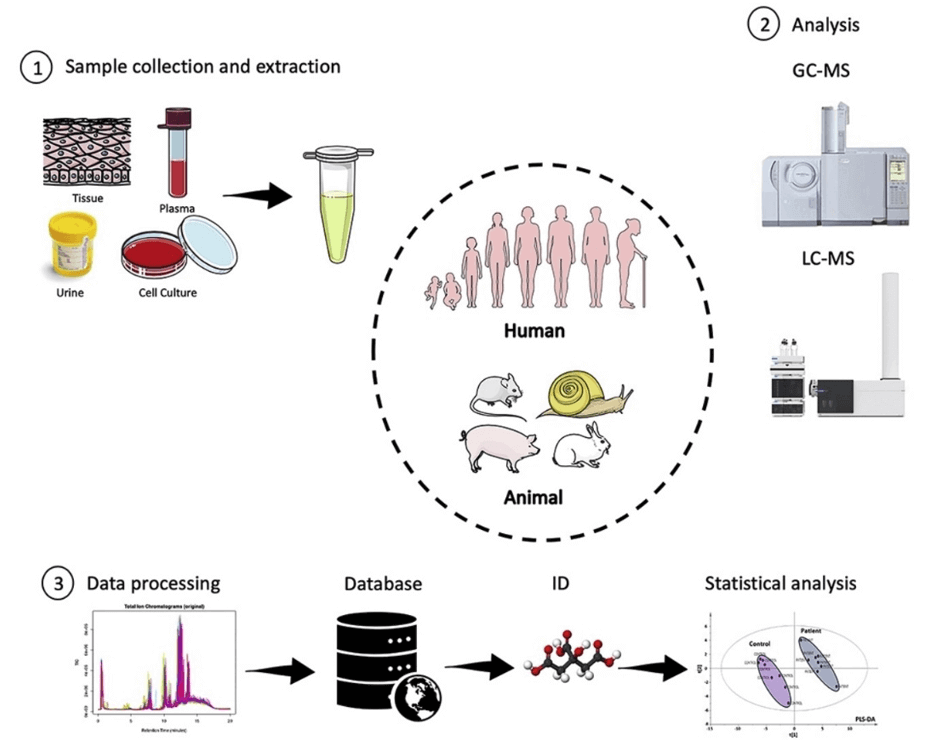Fructose 1,6-bisphosphate Analysis Service
Submit Your InquiryWhat is Fructose 1,6-bisphosphate?
Fructose 1,6-bisphosphate (FBP) is a key intermediate in glycolysis, the central metabolic pathway for glucose catabolism in cells. FBP is involved in the regulation of metabolic flux, energy production, and carbon flow through glycolysis. Due to its crucial role in cellular metabolism, FBP has emerged as a biomarker for several metabolic disorders, such as diabetes, cancer, and neurodegenerative diseases. Accurate and sensitive quantification of FBP levels in biological samples is, therefore, essential for disease diagnosis, prognosis, and therapy monitoring.
 Molecular structure of fructose 1,6-bisphosphate
Molecular structure of fructose 1,6-bisphosphate
Technology Platform for Fructose 1,6-Bisphosphate Analysis at Creative Proteomics
Creative Proteomics is a leading provider of metabolomics services, including FBP analysis by liquid chromatography-mass spectrometry (LC-MS). Our FBP analysis technology platform is based on state-of-the-art LC-MS instrumentation, advanced sample preparation methods, and sophisticated data analysis tools. We offer customized FBP analysis services to meet the specific needs of our clients in the academic, pharmaceutical, and biotechnology sectors.
Our FBP analysis technology platform is designed to provide reliable and reproducible results with high sensitivity and accuracy. We use stable isotope-labeled internal standards for FBP quantification, which ensures minimal analytical variations and interferences. Our sample preparation methods include solid-phase extraction (SPE) and derivatization to enhance FBP recovery and stability. Our LC-MS systems are equipped with high-resolution mass spectrometers and advanced chromatographic columns for optimal separation and detection of FBP and other glycolytic intermediates.
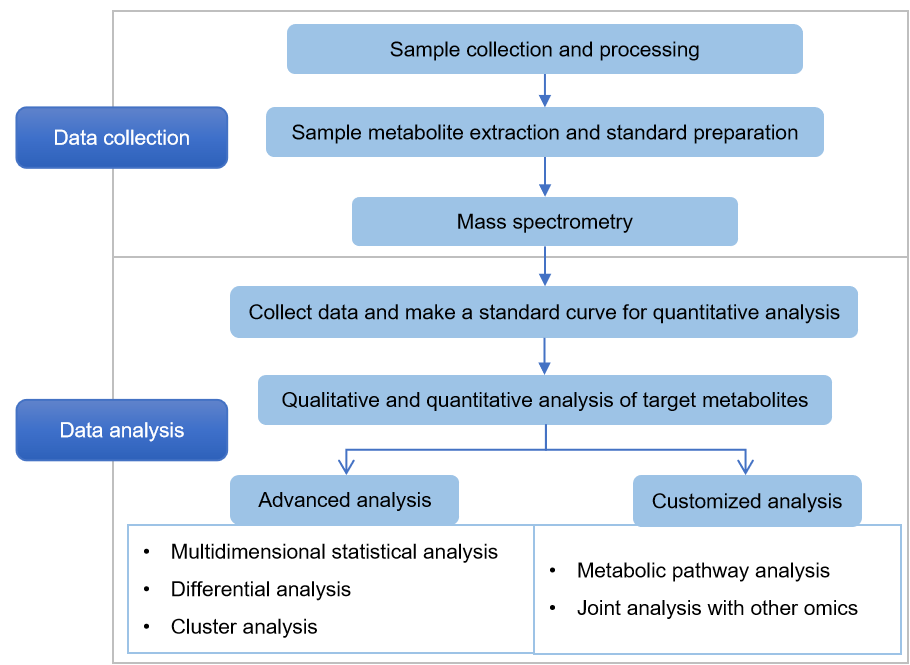
Why Choose Us?
High Sensitivity and Specificity
Our FBP analysis employs state-of-the-art analytical techniques that offer high sensitivity and specificity. We utilize advanced liquid chromatography-mass spectrometry (LC-MS) methods, which enable the accurate quantification of FBP levels in complex biological samples. LC-MS offers superior sensitivity, allowing the detection of FBP even at low concentrations, ensuring comprehensive analysis and precise quantification.
Customized Analysis Strategies
At Creative Proteomics, we understand that each research project is unique, requiring tailored analytical approaches. We offer flexible and customized analysis strategies to meet the specific needs of our clients. Whether you are studying FBP in a specific tissue, investigating its role in a disease model, or exploring its regulation in response to environmental factors, our team of experts will collaborate with you to develop a customized analysis plan that maximizes the relevance and accuracy of the results.
Rapid Turnaround Time
We recognize the importance of time in scientific research. Our FBP analysis service ensures a rapid turnaround time without compromising the quality of results. By streamlining our workflows and leveraging automation, we can deliver accurate and reliable data within a short timeframe. This enables researchers to make timely decisions, progress their projects efficiently, and meet critical deadlines.
Expert Data Analysis and Interpretation
Analyzing FBP data is not just about generating numbers; it requires in-depth expertise to extract meaningful insights. Our team of experienced scientists possesses extensive knowledge in FBP analysis and metabolic pathways. We provide comprehensive data analysis and interpretation, assisting researchers in understanding the significance of their results. Our experts are also available for consultation, ensuring that your research objectives are met and your questions are answered.
Sample Requirements of Fructose 1,6-Bisphosphate Analysis
We accept various sample types for FBP analysis, including:
- Cell Culture: Minimum of 1 x 106 cells or 100 μL of cell culture media.
- Tissue Extracts: Minimum of 50 mg of tissue sample.
- Blood: Minimum of 500 μL of whole blood or 200 μL of plasma or serum.
- Urine: Minimum of 1 mL of urine sample.
Applications of Fructose 1,6-bisphosphate Analysis by LC-MS
Diabetes: The level of FBP in blood or urine samples can be used as a diagnostic marker for diabetes. Abnormal FBP levels are associated with impaired glucose metabolism, insulin resistance, and diabetic complications. FBP analysis can contribute to diabetes mechanism research, and drug and therapy development.
Cancer: FBP levels in tumor tissue or body fluids can be used as a prognostic marker for cancer. Elevated levels of FBP are found in various types of cancers, including breast, lung, and prostate cancers. Therefore, FBP analysis can facilitate cancer-related research.
Neurodegenerative diseases: FBP levels in cerebrospinal fluid (CSF) or brain tissue can be used as a biomarker for neurodegenerative diseases such as Alzheimer's and Parkinson's. Decreased FBP levels are associated with neuronal dysfunction and oxidative stress in these diseases. Analysis of FBP may facilitate research related to neurodegenerative diseases.
Metabolic engineering: FBP analysis can be used to optimize metabolic pathways for biotechnological applications such as biofuel production, bioremediation, and drug synthesis. FBP analysis can help identify metabolic bottlenecks, optimize gene expression, and engineer metabolic fluxes in microbial or plant cells.
Feedback to Customers
- Experimental steps
- Related mass spectrometry parameters
- Part of the mass spectrum picture
- Raw data
- Metabolic molecular identification results
Creative Proteomics offers several approaches to metabolomics studies, delivers precise and detailed data and analysis report. We can also customize the methods or establish new methods together with our collaborators, so they are fit-for-purpose and meet your specific needs. If you have any questions or specific requirements, please feel free to contact us.


